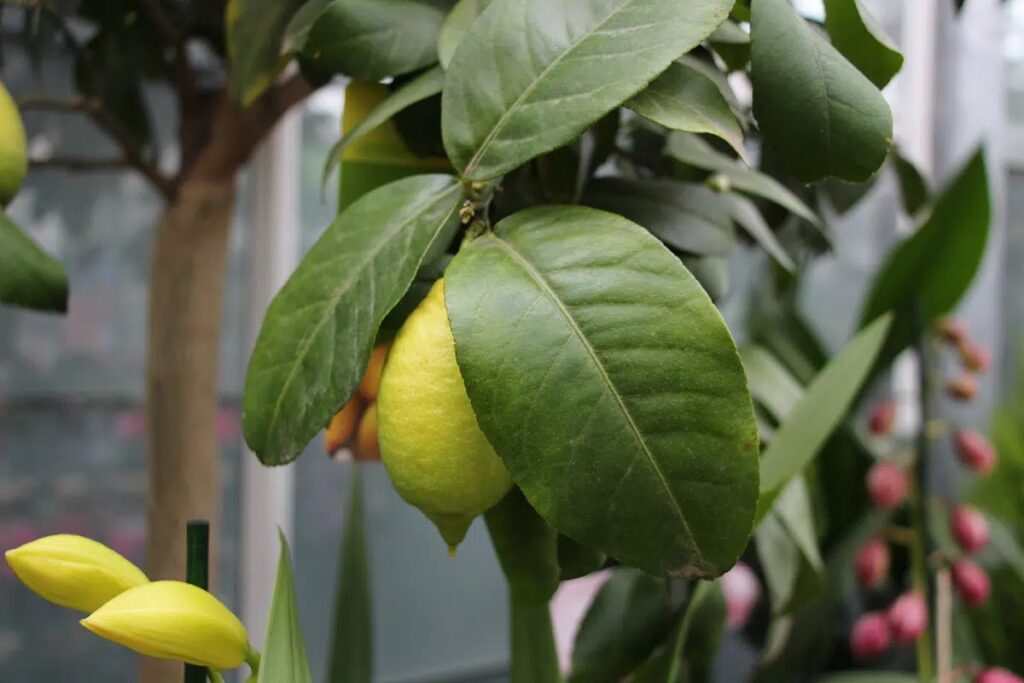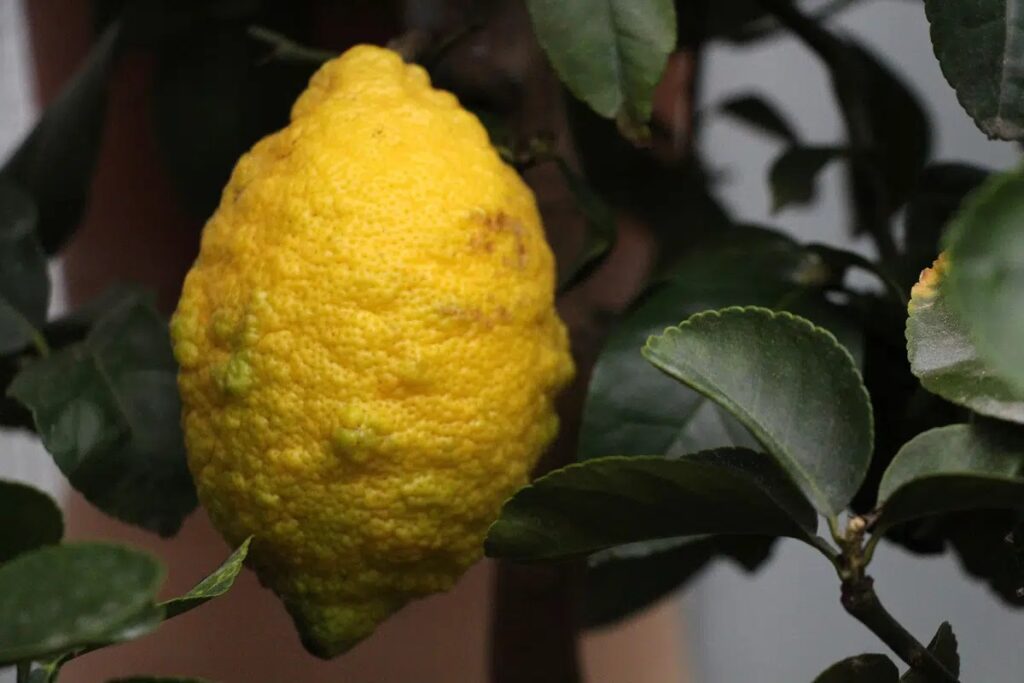Last updated on October 23rd, 2023 at 08:36 pm
A lemon tree, gives a balcony or terrace in the summer Mediterranean flair. The addition is its fruits. Therefore, it is all the sadder when the tree loses the lemons.
The causes of dropping the fruit are easy to describe. There are three possibilities:
- Care error
- Weather conditions
- Pest infestation
Depending on the situation of the plant, these three causes can also occur in combination. For example, if a disease such as root rot occurs, it is a result of continuous rain (weather) or too much watering (watering). In this case, the first thing to do is to save the plant and only then change the conditions. In the example, this would be a change in watering behavior or a change of location to protect the lemon tree from rain.

Contents
- 1 Measures against the effects of weather
- 2 Measures against care errors
- 3 Watering
- 4 Nutrient deficiency
- 5 Water shortage
- 6 Waterlogging
- 7 Measures against pests
- 8 Frequently asked questions
- 9 My young lemon tree loses the fruit, what to do?
- 10 Why do the small lemons of my little tree turn black and fall off?
- 11 Author
Measures against the effects of weather
Although there is no cure for the weather, but you can determine the influence of weather on the lemon tree. For the wrong location, that is, too little sunlight, can lead to the loss of fruit. Therefore, if the tree loses lemons, it should be moved to a
- sunny
- gladly also with full summer sun and
- protected from rain
location protected from rain. If you can not combine these two requirements, you should give preference to the sun in any case. If it comes to continuous rain, you can put the tree in a sheltered place for this period. In this weather situation, protection from rain comes before light conditions.
Measures against care errors
If the lemon tree is in the right location and still loses its fruit, you should reconsider your care measures if no pests can be detected.

Watering
What applies to the supply of nutrients, can also be transferred to the water supply. If you water too much or too little, the lemon tree will suffer from waterlogging or lack of water. Both eventually lead to the dropping of the fruit. As a quick fix, apply the appropriate immediate measures. In the long run, you should adjust your watering habits to the needs of the plant.
Nutrient deficiency
If the lemon receives the wrong care, deficiency symptoms often appear and the plant begins to ensure its own survival. As a result, it sheds energy-intensive plant parts, i.e. the lemons. Although lemon trees belong to the weakly consuming plants, but they also can not do completely without nutrients. Immediate measures are:
- Immediately give the plant liquid fertilizer
- alternatively: transplant the plant into fresh soil.
But even these immediate measures should be used with caution, because too many nutrients harm the plant. Therefore, you should follow the dosage recommendation of the respective manufacturer when giving fertilizer. “Well-meaning” is the wrong approach here. If the lemon tree comes into fresh substrate, it does not need additional nutrients in the first months. Otherwise, there is also a risk of overfertilization of the plant.
To permanently counteract a lack of nutrients, you should start to fertilize the plant regularly. This will allow it to regain strength for the development of new flowers and lemons. The following year, during the winter dormancy is not fertilized, proceed as follows:
- fertilize regularly from March to the end of August
- ideally with a special fertilizer for citrus plants
- alternatively: liquid fertilizer for the irrigation water
- additionally: repot every two to three years
Water shortage
Against water shortage only an immediate watering helps. So that the water does not evaporate immediately, but can penetrate deep into the substrate, you should place the lemon tree for this immediate measure in a shady place. If the size and weight of the plant allows it, you can also place the tree in a container with water. Through the drainage hole at the bottom of the pot, it can easily absorb the water in a shady place. When it has recovered after a few hours, place it back in the saucer to avoid waterlogging. Now it can also return to its usual place in the sun.
Waterlogging
In case of waterlogging only one immediate measure will help to save the lemon tree with a little luck: The roots must be freed from the wet substrate. Proceed as follows:
- Lift the plant out of the wet substrate.
- carefully free the roots from the soil
- generously remove already rotting roots
- Allow roots to dry
- put the plant into a new substrate (and dry pot)
- do not water
Water the plant for the first time after at least one week.
You will see if this rescue attempt was successful when the tree sprouts again. This requires patience, as it must first recover.
Measures against pests
Pests, no matter what kind, weaken the lemon tree because they deprive it of nutrients. Therefore, if the lemon tree is heavily infested, it loses its fruit, as it can no longer provide it with nutrients. Particularly annoying pests in the summer are aphids, and in the winter quarters often make spider mites trouble the little tree. Against this plague helps only one measure: a radical pruning of the plant. After that, care for the tree as usual. As a rule, it will sprout again after a few weeks or days.
Frequently asked questions
My young lemon tree loses the fruit, what to do?
In this case, you don’t have to worry if you can rule out care errors and pests. Young lemon trees in particular tend to develop more fruit than they can actually support. If it becomes too much for the little tree, it will drop the lemons. This natural process sets in after a few years.
Why do the small lemons of my little tree turn black and fall off?
This is because the roots of the tree are too wet, or it lacks nutrients. In any case, you should take the appropriate immediate measures.


